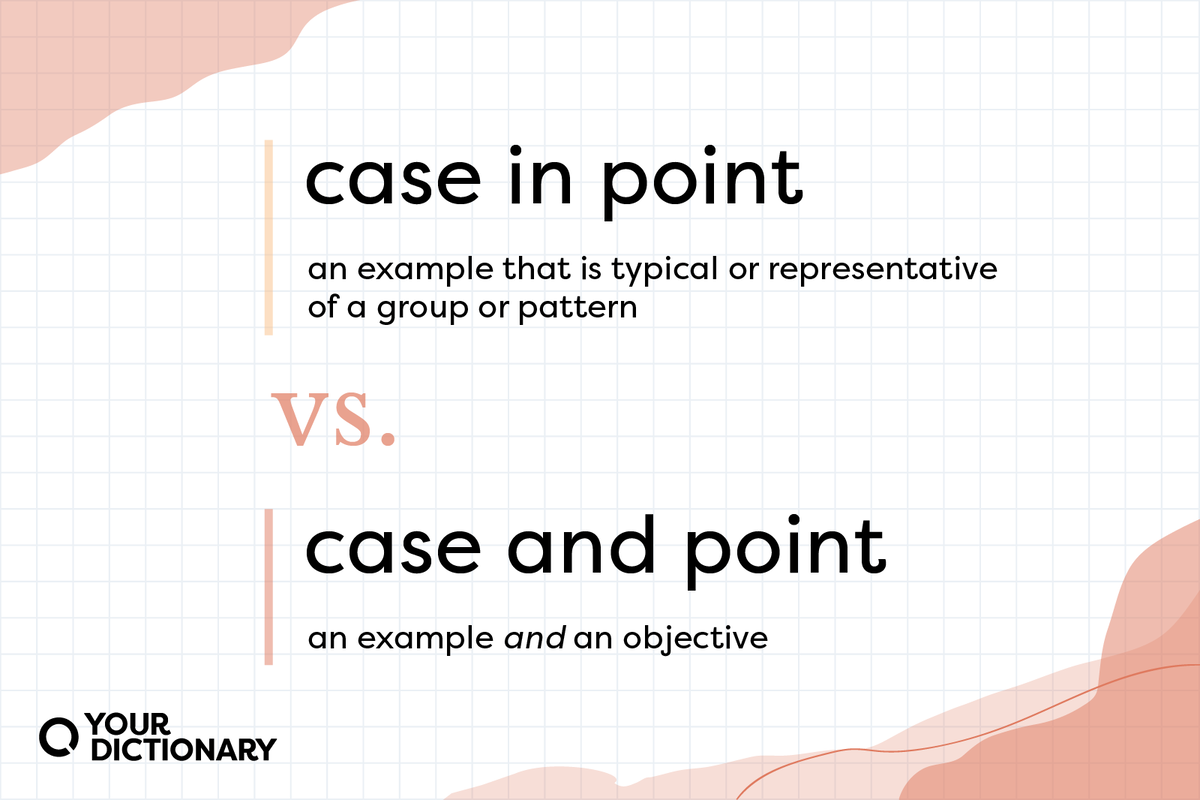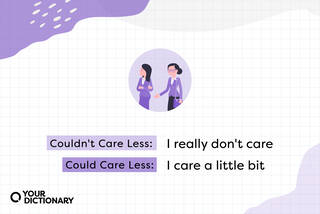
Certain English phrases often sound right even when they’re not technically right. Case in point: Case and point (the incorrect form of case in point).
What Does “Case in Point” Mean?
Case in point is a noun phrase meaning “a good example of a group or pattern.”
- This project is a case in point of what we’re looking for.
- All states have weird laws no one knows about. Case in point: In Nevada, it is illegal to sit on the sidewalk.
Fast Fact
Case in point comes from the legal world where the case refers to a legal case. The “in point” portion is likely derived from the Anglo-Norman phrase en point, meaning “proper” or “in perfect condition.” (Compare to the modern phrase on point.)
In court, it is used to bring forward previous cases that could act as a precedent of prior use of the law.
Examples of “Case in Point” in a Sentence
English speakers use case in point to introduce an example when making a point. You’ll see it as either as a descriptor or as an interjection at the beginning of a sentence.
- I’ve been studying a case in point related to this phenomenon for years.
- The bulldog is a case in point for dogs that get a bad wrap.
- Athletes from this team are cases-in-point of the qualities they are looking for.
- The number of products that aren’t selling is shocking. Case in point: Last year, this one only sold 15 copies.
What Does “Case and Point” Mean?
Case and point isn’t the correct way to say the phrase. Saying case and point is redundant, since case refers to “an example or specific occurrence” of something, and point can mean “an objective or purpose of an argument.”
For this reason, the phrase case and point means “an example and an objective.” While this is similar to the meaning of case in point, “an example that represents the argument’s objective,” it isn’t the correct phrase.
Can You Ever Use “Case and Point”?
The only acceptable use case for case and point is to label a case and a point subsequently, which would likely just appear hard to read or difficult to understand.
- I’d like to show my case and point: “Gravity affects everything” and this falling ball.
- The cookie in your hand and the fact that you are always stealing my cookies are my case and point.
If these same examples included case in point, they would be much easier to understand:
- Gravity affects everything. Case in point: This falling ball.
- You always steal my cookies, and the one in your hand is a case in point.
Fast Fact
Saying two words that essentially mean the same thing is a type of legal tautology.
Consider similar phrases cease and desist, assault and battery, and rules and regulations. It’s not grammatically incorrect, but it’s less straightforward than case in point.
Is There Another Way To Say “Case in Point”?
If you’re presenting a relevant example but want to avoid the case in point vs. case and point confusion, consider incorporating some of the following synonyms for case in point instead.
Tips To Remember “Case in Point” vs. “Case and Point”
Just because you have a case and a point doesn’t mean your case leads into your point.
When you’re trying to prove a point or win an argument, the last thing you want is for it to seem like you don’t know what you’re talking about. Use the quick tip above to remember the proper phrase, case in point, and not its incorrect counterpart, case and point.

Is It 'Could' or 'Couldn't' Care Less? Caring About the Difference